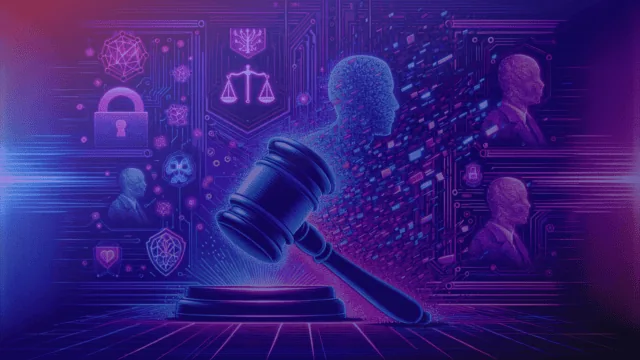Italian Prime Minister Giorgia Meloni has sued two men for defamation following deepfake porn videos featuring her image being posted online, in a civil case that could set a precedent for deepfake lawsuits in the country.
Meloni is seeking 100,000 Euros in damages from the two men, a father and son aged 73 and 40 respectively. Police traced the deepfake videos to a phone the pair allegedly used to upload them in 2022.
The PM has said that she will donate any money she wins from the case to causes related to women suffering from gender-based violence. She is due to testify in court in Sassari, Sardinia on July 2, 2024.
Deepfake porn videos and images have become prominent online over the past few years, in line with the quick increase in AI capabilities. Many feature fake depictions of female celebrities in hardcore porn situations. It can be tough for authorities to crack down on them because it’s sometimes unclear if they break laws, and tracking their creators online is often difficult.
Meloni’s legal team said that she hoped the lawsuit would help “send a message to women who are victims of this kind of abuse of power”.
According to the indictment, the deepfake porn videos featuring Meloni’s face were viewed millions of times and were uploaded before she became Italy’s Prime Minister in October 2022.
Just five years ago deepfake porn videos were seldom seen online, but AI-based video tools have since made creating them quick and cheap. They have been used for nefarious purposes such as extortion, but in most countries, laws have been slow to catch up with this quick-evolving technology.
Sharing deepfake porn without the consent of those depicted in it has recently been criminalized in the UK. The Preventing Deepfakes of Intimate Images Act has been proposed in the US, which would do the same in the country.
However, currently, most people who create deepfake porn without consent likely go unpunished. The New York Times has highlighted how deepfake schoolchildren have used technology to create compromising photographs depicting other children.
Francesca Mani, who attends school in the US, started up the website aiheeelp.com to educate people about deepfakes after a deepfake image of her was allegedly shown in her school and police took no action.
According to a 2023 study conducted by the independent security review website Home Security Heroes, 98 percent of deepfake videos online are porn videos.
Yiota Souras, chief legal officer for the National Center for Missing & Exploited Children, told the New York Times: “We just continue to be unable to have a legal framework that can be nimble enough to address the tech.”








Leave a Reply